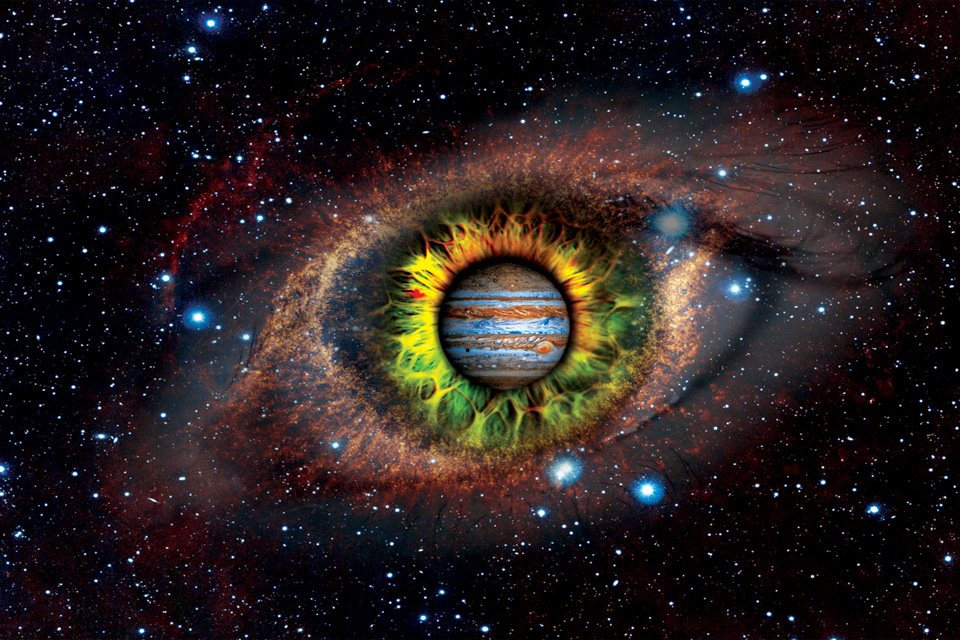FRINGE SHORTS: “Fifth Planet” by Joking Apart Theater
In this show, directed by Jean Wolff, performers offer an effective iteration of playwright David Auburn's ("Proof") lesser-known play about astronomers in love.

I should say up front: I worked briefly with Fifth Planet’s director (Jean Wolff) on a production several years back, which I crewed for and in which she performed. With that potential prejudice out of the way, I’d like to address a likely more relevant one: I have to confess, I’m a bit bewildered by the presence of canonized shows in the Fringe. My criticism tends to focus on textual analysis, and I’ve always regarded the festival, at its most compelling, as a laboratory for new work.
But that’s a writer’s prejudice, and I recognize that there are many other valid reasons to produce a published script. Maybe you have a bold and untested interpretation, for example, or a body of actors who want to stretch in directions they don’t normally have opportunity for; perhaps you want to introduce a community to material to which they wouldn’t otherwise be exposed. The latter seems to be the motivation here, as this is a lesser-known play by David Auburn, better known as the author of Proof (which received a film adaptation starring Gwyneth Paltrow).
The most striking technical aspect of this production is that it’s largely composed of a series of short scenes — like, really, really short. What we’re seeing is the gradual evolution of a relationship over a long period of time, and some of the glimpses we get don’t last more than a few seconds (characters walking past and nodding at each other, for example), separated by blackouts. I assume that their technical rehearsal must have been a freaking nightmare (I didn’t record the exact total, but the number of lighting cues far exceeds the number of minutes in the show). But, I have to say, it pays off — the overall effect is pretty cool, almost like a live-action equivalent to time-lapse photography.
So, the effect is cool, but what about the narrative it’s hung on? The premise hits the right notes for me: we have a pair of astronomy geeks, one of whom is a professional scientist, the other a hobbyist. I’m a science geek myself. Nothing more than a hobbyist, but I’ve had my share of interactions with the scientific world (I’m the son of a scientist, and also marrying one) — enough to be conscious of the fact that the actual day-to-day work of science can be pretty soul-crushing. On good days, the job can consist of tedious data collection. On the far more frequent bad days, the job entails dealing with money: writing grants, writing budgets, and rewriting both when everything goes haywire. The great days are rare, and in this respect the profession closely resembles the arts. The reality of working as a scientist means chasing a few fleeting highs in the desperate hope of catching the one-in-a-million unique idea.
This is the central conflict of the show, and I very much wanted it to be more interesting. The thing is, the script (despite being ably performed) isn’t quite fish or fowl: it’s not funny enough to sustain itself as a relationship comedy and not deep enough to be much more than that.
I will say that this is one of those rare cases in which I’m grateful to be composing my review a few days after seeing the show, because I’ve come to rethink my feelings about the ending. The story peters out into an anticlimax, one that I found myself walking away from with a frustrated shrug. But the more I contemplated it, the more I admired the choice. It’s the truthful choice, the one that reflects the frustrating reality of what the frustrating work of science actually is.
I admire it, however that doesn’t mean the ending’s dramatically satisfying, of course. But the fact that it stuck with me so long after the curtains closed puts it a head above the vast bulk of Fringe shows.
______________________________________________________
Related performance details:
Fifth Planet, written by David Auburn and produced by Joking Apart Theater, has one show remaining at Theatre in the Round, on Saturday, 8/9 (5:30 pm). The 2014 Minnesota Fringe Festival runs from July 31 to August 10.
phillip andrew bennett low is a Chinese-American playwright and poet, storyteller and mime, theatre critic and libertarian activist. His performances have won acclaim at such varied venues as the Minnesota Renaissance Festival, Spirit in the House, FoolFest, CONvergence, and the Chicago, DC, Indianapolis, Iowa, and Kansas City Fringe Festivals — even as far as Melbourne, Australia. He is the co-founder of the Rockstar Storytellers (for which he served as Chair for the two years that position existed) and was founder and producer of the touring theatre troupe Maximum Verbosity.